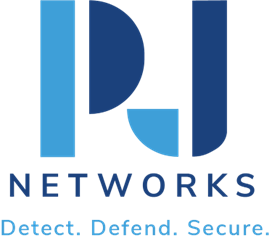The Role of NOCs in Supporting Hybrid Workforces
In today’s world, the NOC hybrid workforce is becoming more prevalent. As more businesses adopt remote and hybrid work models, the role of Network Operations Centers (NOCs) becomes essential in ensuring network reliability and efficient operational support.
Challenges of Hybrid Workforces
We all know that remote work brings flexibility, but it also introduces its own set of challenges. Employers and employees face difficulties that can impact productivity and security:
- Connectivity Issues: Uneven internet quality across different locations.
- Data Security: Increased vulnerability to cyberattacks.
- Communication Barriers: Difficulty maintaining seamless information flow.
- IT Support: Troubleshooting from a distance can be challenging.
How NOCs Support Remote Networks
NOCs play a pivotal role in managing and supporting hybrid work environments. Here’s how they do it:
- 24/7 Monitoring: NOCs keep an eye on network operations non-stop, spotting issues before they become big problems.
- Performance Optimization: They ensure applications run smoothly, optimizing bandwidth distribution.
- Issue Resolution: With skilled technical teams, NOCs can quickly resolve issues, minimizing downtime.
- Scalability: They adapt to growing network demands, ensuring consistent performance.
Tools for Managing Hybrid Networks
Now, let’s talk about the tools that help us in a hybrid workforce scenario:
- SD-WAN: Cloud-based architecture helps in routing traffic efficiently, ensuring network reliability.
- VPNs: Provide secure access to enterprise networks.
- Collaboration Tools: Platforms like Slack and MS Teams facilitate smooth communication.
- Remote Management Software: Tools like TeamViewer assist in remote troubleshooting.
Security Considerations
Security in a hybrid work model is crucial. With increased access points, NOCs help maintain security by:
- Implementing Firewalls: Protect networks against unauthorized access.
- Regular Software Updates: Ensure all devices have the latest security patches.
- Intrusion Detection Systems (IDS): Monitor network traffic for any suspicious activity.
- Cybersecurity Training: Educate employees about potential threats and safe practices.
Real-life Examples
Let’s look at some real-life scenarios where NOCs have made a difference:
- Tech Company X: Their NOC enabled remote work for 5,000 employees overnight while maintaining network reliability.
- Healthcare Group Y: With a hybrid workforce, their NOC ensured patient data remained secure with zero breaches.
- Retail Chain Z: Their stores and remote staff stayed connected without hiccups, thanks to an efficient NOC setup.
Conclusion: Future of Hybrid Work Support
The future of hybrid work is bright, but it requires solid network support. As remote work grows, the importance of NOCs cannot be overstated. With tools like SD-WAN and vigilant network monitoring, NOCs will continue to ensure robust operational support. Embracing these changes today will prepare us all for the evolving NOC hybrid workforce landscape.
